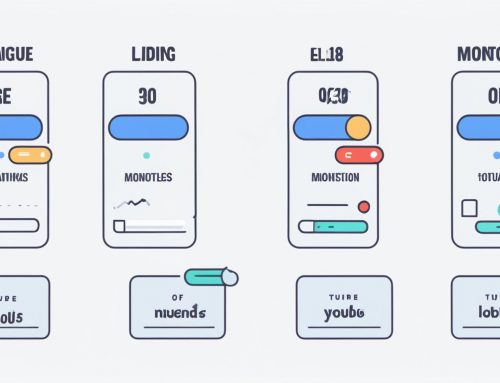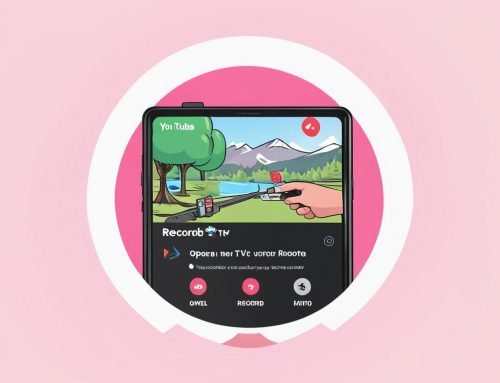When uploading videos to YouTube, it is important to understand the processing time involved, especially when it comes to high-definition (HD) content. Factors such as video resolution, file size, internet speed, and YouTube server traffic can affect the processing time.
On average, it takes YouTube 1-3 hours to process 720p HD videos, 2-4 hours for 1080p Full HD videos, and 3-5 hours or longer for 4K Ultra HD videos. It is crucial to consider these factors in order to plan better for HD video releases and optimize upload times.

Key Takeaways:
- YouTube processing time for HD videos ranges from 1-3 hours for 720p, 2-4 hours for 1080p, and 3-5 hours or longer for 4K Ultra HD videos.
- Factors such as video resolution, file size, internet speed, and YouTube server traffic impact the processing time.
- Understanding the processing time can help content creators plan their releases and optimize upload times.
- Considerations such as optimizing video settings and file formats, using a wired internet connection, and exploring alternative video hosting services can further improve processing speed.
- Swarmify is a recommended alternative hosting service that provides faster upload speeds and more control over ads and monetization.
Quick Links:
Buy YouTube Views ▸ Buy YouTube Comments ▸ Buy YouTube Likes ▸ Buy YouTube Subscribers
Understanding Video Processing on YouTube
When it comes to uploading videos on YouTube, understanding how video processing works is essential. It involves converting the uploaded video file into a streaming-optimized format through a process called transcoding.
During video processing, the uploaded video is encoded into various resolutions, bit rates, and formats to accommodate different devices and internet connections. This ensures that viewers can watch the videos smoothly, regardless of their device or internet speed.
However, it is important to note that processing time can vary, especially for high-definition (HD) content. HD videos, such as those with resolutions like 720p, 1080p, and 4K, require more time for processing due to their larger file sizes and higher quality.
Several factors affect YouTube video upload time and processing duration. These factors include:
- File size: Larger file sizes take longer to process.
- Internet connection speed: Slower internet connections can result in longer processing times.
- Video resolution: Higher resolutions, like 4K, require more processing time.
- YouTube server traffic: High server traffic can lead to delays in video processing.
By understanding these factors, content creators can better manage their video uploads and optimize the processing time. It is important to consider these factors when planning for HD video releases and setting expectations for processing duration.
Common Problems and Troubleshooting Tips

When uploading videos to YouTube, content creators may come across common problems in video processing. These issues can range from delays in processing to quality degradation. Understanding and addressing these problems can help optimize the video processing experience on YouTube. Here are some tips and troubleshooting techniques to overcome these challenges:
1. Delays in Processing
One of the most common issues encountered during video processing on YouTube is delays. These delays can be caused by factors such as:
- Large file sizes
- Slow or unstable internet connections
- High server traffic
To speed up the processing time, consider the following actions:
- Check your internet connection and ensure it is stable and fast.
- Verify the video settings and make sure they comply with YouTube’s recommendations.
- Reduce the file size if necessary by using video compression techniques or trimming unnecessary footage.
- Try uploading the video using alternative web browsers or clearing your browser’s cache.
2. Quality Degradation
Another common issue during video processing is quality degradation. This can occur due to various reasons, including:
- Incorrect video settings
- Unsupported video formats
- Compression artifacts during processing
To troubleshoot and maintain video quality, keep the following in mind:
- Double-check the video settings before uploading to ensure they align with YouTube’s recommended guidelines.
- Convert the video to a compatible format, such as MP4, and use the H.264 video codec for optimal processing.
- Avoid excessive compression during video processing that can lead to visible artifacts and loss of quality.
By applying these tips and troubleshooting techniques, content creators can effectively tackle common problems encountered in YouTube video processing. Identifying and addressing these issues will result in faster processing time and improved video quality.
| Problem | Troubleshooting Tips |
|---|---|
| Delays in processing | 1. Check internet connection 2. Verify video settings 3. Reduce file size 4. Try alternative web browsers or clear cache |
| Quality degradation | 1. Double-check video settings 2. Convert to compatible format (e.g., MP4) 3. Use H.264 video codec 4. Avoid excessive compression |
Considerations and Alternatives for Faster Uploads
When it comes to speeding up video processing on YouTube, there are some additional considerations and alternative options to explore. One effective strategy is to utilize wired internet connections instead of relying on wireless connections. Wired connections can significantly improve processing speed and stability, ensuring a smoother upload experience. Furthermore, uploading videos during off-peak hours can help avoid network congestion, resulting in faster processing times.
Another important factor to consider is video formatting. Ensuring that videos are correctly formatted according to YouTube’s recommendations can optimize processing time. Using the MP4 format and the H.264 video codec, as suggested by YouTube, can help expedite the processing process.
In addition to these considerations, exploring alternative video hosting services can offer significant benefits. Dedicated video hosting services provide faster upload speeds, a more stable processing environment, and reliable support. These services also offer creators more control over ads and monetization, enhancing the overall experience. One such recommended alternative is Swarmify, a video hosting platform known for its improved video processing capabilities and comprehensive support.
By considering these factors and exploring alternative video hosting services, content creators can optimize their upload experience and speed up video processing beyond what is offered by YouTube, ultimately enhancing their content distribution and audience engagement.
Read More
- Duration Insights: How Long Do YouTube Edits Take?
- How Does Sponsorship Work on YouTube: Guide 2024
- How Do You Share a Private YouTube Video?
- How Do You Report a YouTube Channel? Quick Guide & Tips
- Losing YouTube Views? Understand the Reasons!
- Feature Other Channels on YouTube – Quick Guide
- Block Unwanted Users: How Do You Block Someone on YouTube?
- The Default YouTube Profile Picture Explained
- Can You Trim a YouTube Video After Uploading? Tutorial 2024



